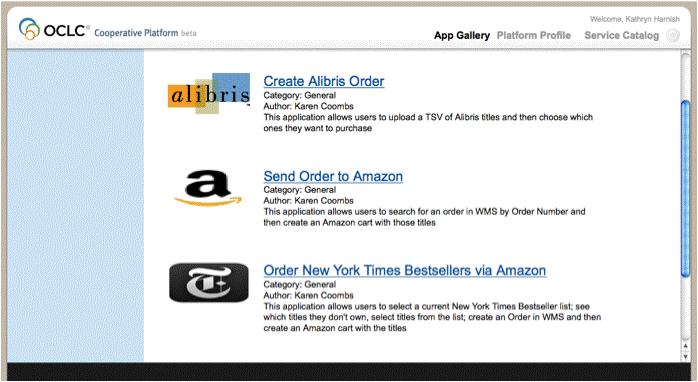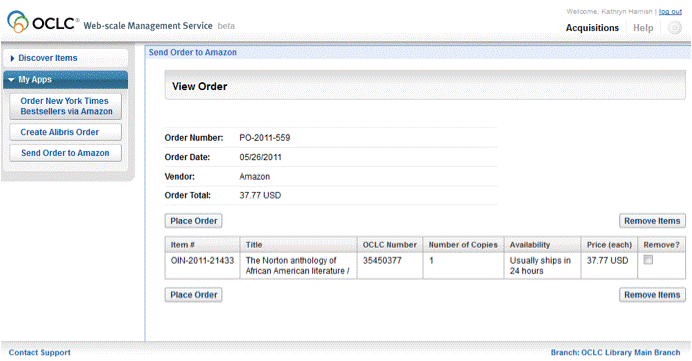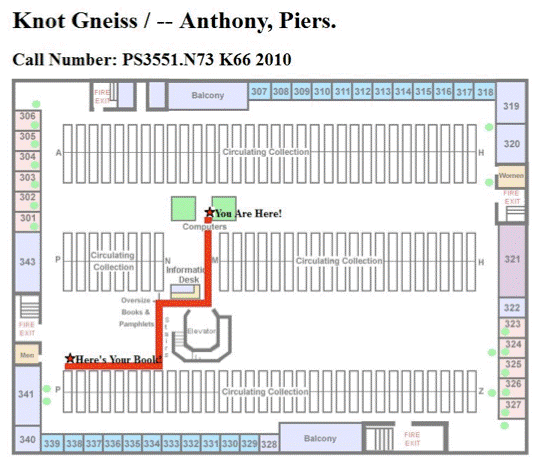This one’s for you: Introducing the OCLC Cooperative Platform
At the recent American Library Association conference, held in late June in New Orleans, I had the privilege of presenting — with a few of your Developer Network colleagues — on OCLC’s new Cooperative Platform.
What’s that, you ask?
The Cooperative Platform is a new initiative designed to make OCLC’s Web services — the same ones we use to create our products — more widely available to the library (and other interested) development communities. The Platform has several key goals, all of which build on the great environment already offered by the Developer Network:
- To provide greater access to externalized services across OCLC’s product portfolios. Each product group is beginning to look at which services might be of the greatest value to the developer community and, as a result, we’ll be able to provide documentation on a wider variety of read — and write! -- services that can be integrated into locally-developed applications. Combined with the APIs already available via Developer Network, libraries will have a number of new opportunities to create innovative, solution-oriented apps for both staff and library users. To encourage this innovation, we’re planning to allow developers at libraries with active subscriptions to one or more OCLC products access to any of the Platform-based services in a test environment. And we’re taking a service-neutral approach to the Platform...we’re eager for partners within the industry to start looking at ways of enhancing their offerings with OCLC’s services.
- To facilitate greater sharing of apps built using OCLC’s services. The Platform includes an App Gallery, through which library developers can share the fruits of their labor with other libraries, including those with limited technical resources. The code you write once can get used and re-used, while you and your library receive the credit. It’s simple for your library or for libraries without developers to search for apps of interest and plug them into the library’s workflow or discovery space.

- To integrate library-developed apps more effectively into the library’s business processes and user services. The Platform makes it easy to plug an app directly into the user’s workspace - the example below shows how you can plug an app that supports local selection or purchasing processes right into the Acquisitions module

Or, check out the work of Andrea Schurr at the University of Tennessee at Chattanooga, one of our library pilot partners (along with Orbis-Cascade and Washington State University). Andrea’s library will be getting a new - and much larger - building soon, and she used a Platform service (for circulation and item data) to create a “computer-to-shelf” app that helps users to find their ways to the items they want.

- To create a community of creative cooperation. The library community has tons of inspired ideas about how to provide improved user services or expedited workflows...and it’s our goal to help bring the right people, the right ideas, and the right skills together to act upon those ideas.
We’ve been gradually introducing the Cooperative Platform at mashathons, conferences, and the like, but the time seems right to start sharing more of our planning with the Developer Network community in advance of our general release later this year. In the coming months, stay tuned for additional blog posts that provide more detail about our work to date...including some interesting reading from Karen Coombs, who has been instrumental in working with the Platform development team, our pilot libraries, and the initial services and apps on the Platform!
If you have any questions in the meantime, please feel free to contact me or Karen...we’re happy for questions about and ideas for this new initiative!
